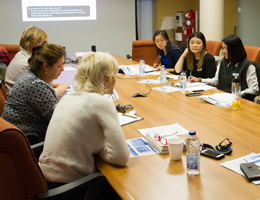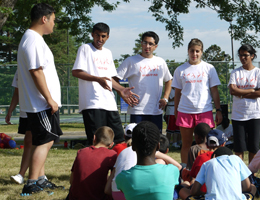Community partners can benefit from the skills and enthusiasm of Faculty of Health students in Global Health, Health Policy and Management, Kinesiology and Health Science, Nursing, and Psychology through a variety of experiential education (EE) opportunities.
What is experiential education?
How do I get started?
Contact one of our EE Coordinators to discuss your ideas! We are available to support you through all stages of a partnership, from identifying an appropriate opportunity, to planning and structuring projects, and connecting you with our students.



